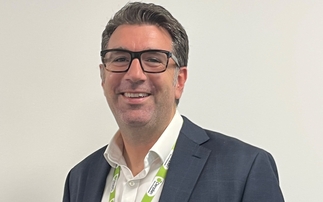Recent trends suggest the majority of healthcare cash plans are purchased by women. Raman Sankaran finds out why
Although clearly established as a unisex healthcare product, healthcare cash plans are increasingly being sought after by women of all ages and backgrounds.
Providing a specific sales opportunity for intermediaries, this trend can be attributed to a number of factors. Not simply due to the fact that the lifestyle, status and profile of women in society has changed greatly over the last 100 years, it can also be explained by an increased awareness of health issues and a rise in associated costs.
There is no doubt the historical male/female roles have evolved with many women not only retaining the important position of a primary carer, but also taking on greater responsibilities for the financial security of the family and earning an equal or greater amount than their partners.
So in addition to looking after their own healthcare, a significant proportion of women are also the key decisionmakers when looking after the needs of their family and have the final say in important personal finance decisions, particularly on health issues.
There are also segments like independent professional women without families who are happy to invest in looking after themselves. In particular, cash plans generate interest from younger women who seem to be more aware of general healthcare issues, more so perhaps than their male counterparts.
Female appeal
Increasingly mindful of the decline in free immediate treatment for everyday healthcare areas, they are looking to healthcare cash plans as a way to budget for the cost of expected and unexpected healthcare requirements in a financially unpredictable world.
These trends create opportunities for intermediaries looking to target female clients with healthcare policies. Cost-effective, easy to use and highly relevant to all, they provide excellent repeat commission with little or no administration on behalf of the intermediary.
Women and their families can be covered for an extensive range of everyday, essential healthcare treatments, such as dental and optical care, physiotherapy, osteopathy and chiropody along with increasingly popular complementary therapies including reflexology, acupuncture and homeopathy.
These benefits are key when selling to female clients. Wide ranging and comprehensive, a large proportion appeals particularly to female customers who are able to make use of many of the treatments both for themselves and their children ' from basics such as dental and optical cover through to a one-off baby payment to help with the ongoing costs of having a child.
Along with a payment for each and every child born, policies also provide nightly allowances for maternity inpatient hospital admission, recuperation payments and hospital parental stays.
Depending on the provider, they can also assist in timely access to treatment as GP referrals are not required. Many cash plans can cover the cost of a specialist consultation, cutting out lengthy and inconvenient waiting times.
Often the main carers as children grow older, most women are conscientious about making and attending check-ups with the doctor or dentist, both for themselves, their children and their partners ' and are often the ones forced to take time off from work to look after children when they are ill.
This means many may have experienced first hand the decline in free immediate treatment, the difficulty and additional expense of not being able to find a dentist taking on NHS patients and the increase in waiting times for treatment of non-life threatening illnesses.
And, as the ones signing the cheques, they are fully clued up on the associated costs of routine treatments and may be more receptive to budgeting through the purchase of a cash plan.
This is key for many families as, despite the perception that healthcare is free for children ' particularly for basic dental and optical treatments ' there are specific areas for which a charge will be made, such as white fillings, private consultations and other specialist treatments.
Cash plans also provide cash back on complementary therapies ' the relaxation and health benefits about which women tend to be better informed and more enthusiastic ' and can be a real draw for intermediaries when selling the plans.
Treatments covered under plans allow increasingly health-conscious females to proactively correct existing complaints or simply relax, de-stress and re-energise.
In fact, with both sexes being more aware of the need to look after their health than ever before, one of the most interesting selling angles of a cash plan is the fact that they are not simply to be used when ill.
Traditionally seen as a corrective measure to cater for times when things go wrong, a visit to a health professional such as a complementary therapist is increasingly being viewed as a positive tool to enhance ongoing wellbeing.
Raising awareness
This often appeals to women who are more seduced by the holistic elements of these therapies.
Despite such generous and relevant benefits, awareness of cash plans with both consumers and intermediaries remains low with the product still relatively unknown in the wider marketplace.
Many mistake cash plans for private medical insurance (PMI), only adding to misconceptions within the industry over how the products work, how relevant they are and what they offer in terms of benefits and commission.
Whereas PMI insures against more serious and possibly life-threatening medical procedures, cash plans offer cash payments towards the ever increasing cost of a wide range of everyday essential healthcare treatments.
By covering day-to-day healthcare costs, cash plans sit comfortably with PMI complementing its critical illness benefits and creating an effective cross-sell opportunity with other portfolio products.
Demand continues to rise as individuals' health requirements and understanding of products increases, providing a huge untapped area of growth for intermediaries looking for new sales opportunities.
For intermediaries, a combination of low premiums and high perceived value make cash plans an easy sell. Offering long-term commission potential as policy holders tend to maintain policies for many years, they are a good door opener and provide a relatively easy additional sales opportunity.
Affordable, flexible and with no medicals required, the plans can be sold to women as a one-person plan or include partners by means of a two-person option with dependent children often covered for free in many areas.
Providers are increasingly switched on to helping intermediaries sell their products and offer support and backing in the form of marketing expertise and a wide range of other resources.
Effective cover for themselves and their families, peace of mind and access to immediate and speedy treatment are all aspects that will particularly appeal to women who have more pressures on their daily schedules and budgets than ever before.
Without neglecting male clients, this increasing interest from women is providing a new and healthy opportunity for intermediaries.
We all have to prioritise our spending and in view of well-documented pressures on the NHS, it is now more than ever that health issues are priority with women often controlling the purse strings when it comes to caring for their family's health.
Raman Sankaran is marketing communications manager at HealthSure
COVER notes
• The day-to-day healthcare needs of families are often taken care of by women, making cash plan benefits particularly appealing.
• Holistic elements of cover have been found more attractive to women than men.











